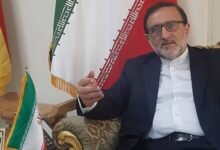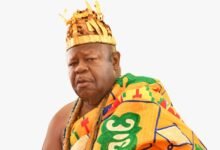Pointers of true leadership: Measuring transformation
The concept of leadership is essentially about critical wellbeing of a group of people; the idea of ensuring sustainable societal stability. Leadership is not mere influence; it is the delivery of public good.
True leadership is essentially one without post, without pay, without paid followers, without legacy and among others, without popularity. True leadership is simply good, for its own sake.
A true leader may have a post, pay, paid followers, legacy, and among others, popularity. False leaders may also have all these.
How then may a truly true leader be identified?
A true leader is one without post:
By post, position, I mean a mandate given from an external factor, example a president of a country is a leader because he is elected by the people into that office. The position is determined by an external factor. His responsibilities include ensuring that no child dies out of malnutrition or malaria, for example.
If there be another person, say in a small community, who has no biological children of her own, and has no post in the community, but he is able to ensure that no child in the community dies out of malaria or malnutrition, he may be a better leader than the president in this limited respect.
Too many people seek to be leaders because we assume that all leadership is only positive when one has a position with an external mandate. This is because the mandate comes along with available resources. Is anyone ready to be in a position of responsibility without available resources, except for human and raw materials?
Many seek the post of political leadership because the mandate gives them access to resources in the context of poor accountability framework. Even for the available human and other natural resources, there is no consistently rigorous framework of motivational (not just punitive) accountability.
My contention is that one can be a public leader without post; meaning without external mandate and without bestowed resources. Without external mandate means that you don’t act merely because people are asking you to do something or you don’t refuse to act because people will be unhappy if you act. You act because acting at that time is a good thing, the right thing to do. This means you have the wisdom to determine what is good. You have the intellectual, social, spiritual and experiential capacity and capability to determine what is good; without a post. Can’t we work towards producing such leaders in our country, continent and generation? This is my understanding of godly leadership: inspired, convicted, empowered and equipped from within by God.
A true leader is without pay:
By this I mean a leader who does not insist on an external reward to meet his responsibilities. Of course, a labourer is due his wages. The argument is that a true leader is a “self-imposed” labourer who therefore should pay himself. And what pay is more fulfilling that achieving the results the people you lead hope for?
A God-sent leader is one upon whom the responsibility of seeking public good is generated from within him by the Holy Spirit, the Spirit of Christ. An important indicator for anyone who claims to be a God-sent leader is to not insist on a salary. A man sent from God must be paid by God. A true leader must be paid by Truth.
Political leaders are paid by politics. Judicial leaders are paid by justice. Civil society leaders are paid by civility. We don’t have to do these payments in cash. The money is not the paper cash it is the human value. Leadership is not a mere job; it is mere life.
Leadership is of life; not for a living.
Those who work for pay are not leaders they are workers. A true leader is essentially a labourer for himself not merely a worker for the people because when he seeks the wellbeing of people it is because he cannot live without it.
Those who work for the people live on what the people “should” pay them not necessarily on what they do. The wages of true leaders comes from within, not without. His satisfaction is not his pay slip or material gain. His satisfaction is the well being of the people; the public good. Certainly this is not too difficult for us to appreciate because we all experience this when we do things for those we love.
True love does not work for pay. True love eats love, literally. A true leader will surely be paid by the good public because he produces public good. He does not insist on his pay it will be given without asking, by a good public. Our challenge is that leaders may not be producing enough public good so there may not be enough good public.
The writer is a member of Cross-Cutting Excellence (CCE)
BY EMMANUEL KWAME MENSAH




